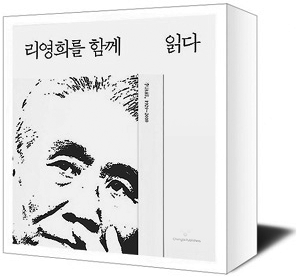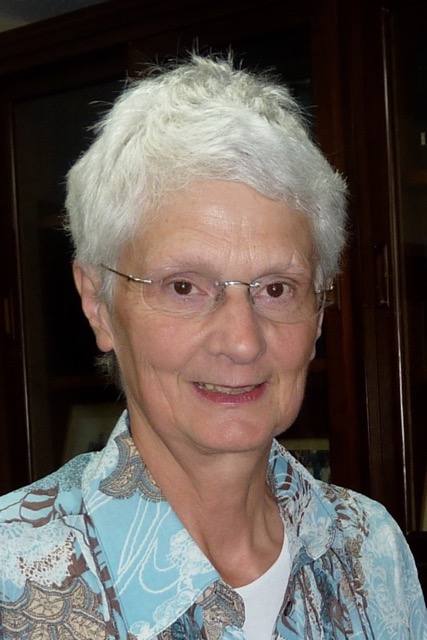
리영희 교수(1929-2010)와 함께했던 연구의 기억 / 크리스티네 리네만-페린
리영희 교수(1929-2010)와 함께했던 연구의 기억

크리스티네 리네만-페린(Christine Lienemann-Perrin) / 전 바젤대학교 신학부 교수
리영희 교수와의 협업은 내가 1977년부터 1985년 말까지 하이델베르크의 한 연구소 파트타임으로 일하면서 시작되었습니다. 선생은 1985년에 3개월간 이 연구소에 방문학자로 지내셨습니다. (1) 먼저 이 연구소에 대한 몇 가지 이야기, (2) 1980년대에 선생과 함께 했던 연구주제, (3) 그리고 선생과의 토론내용과 그 토론이 내 연구에 남긴 영향에 대해 이야기하고자 합니다.
1. 하이델베르크의 개신교 연구소(Forschungsstätte der Evangelischen Studiengemeinschaft / FEST)
하이델베르크 개신교 연구소(이하 FEST)는 1957/58년 독일 프로테스탄트 교회들에 의해 창설된 다학제간 연구기관으로 1960년대와 1970년대에는 평화연구로 유명했습니다. 연구소는 재정적으로는 그때나 지금이나 교회로부터 비교적 넉넉하게 지원을 받고 있습니다. 연구소의 첫 번째 소장은 철학자이자 교육개혁가인 게오르크 픽트(Georg Picht)입니다. FEST 연구원들은 12명 정도로 철학, 정치학, 경제학, 사회학, 역사학, 의학, 자연과학, 신학과 같은 다양한 연구 분야에서 온 사람들이었는데, FEST는 국내외 다른 연구소와 다양한 협력 관계를 유지하고 있습니다.
FEST 프로젝트는 세 가지 원칙 하에 진행되었고 이후 여러 변화들이 있었지만 이 원칙들은 변함없이 적용되고 있습니다:
- 학제적 연구는 현대 세계의 밀접하게 얽힌 상호작용 과정을 다루는 데 적절하고 필수적이다.
- 기독교인들은 인류사회에 대한 정치적 책임이 있기에 정책자문은 연구 프로젝트에서 중요한 부분이 된다.
- 기술진보에 기반한 현대문명에서 과학과 기술은 그 문명에 대한 위협요인이기도 하기에 이에 대한 비판은 연구과정의 필수요건이다.
1980년대 FEST 연구소는 다음 3개 분야에서 주로 활동했습니다 : (1) 자연과학과 신학간 대화, (2) 대량 파괴무기 시대, 인류생존의 조건으로서 평화에 대한 신학 및 교회의 기여, (3) 지역, 국가 및 국제사회에서 교회의 사회적 책임.
이들 분야에서의 FEST의 다양한 자문활동은 신학, 철학, 법학, 자연과학 이론, 의학 윤리, 생태학 및 경제학 등 분야에서의 기초적 연구에 의해 이루어질 수 있었습니다. 이후 연구프로젝트는 새로운 중점분야로 관심을 이동하게 되었는데 '평화'를 중심으로 하며 '지속가능한 발전'이, 그리고 '교회 법'에 '종교와 문화'가 추가되었습니다. 또 신학과 사회과학간 대화, 그리고 넒은 의미의 생태학 연구를 포함한 다양한 분야가 열렸습니다. 현재 독일에서는 교회들의 FEST 연구 프로젝트에 대한 관심이 계속되고 있으며, 실제로 증가하고 있습니다.
2. 연구초점: 사회전환기 교회와 공공영역
1980년대 FEST는 권위주의 정치체제에서 민주주의로의 변화를 겪은 국가들에서 교회와 공공영역에 대한 중장기 연구 프로젝트를 시작했습니다 (한국, 싱가포르, 필리핀, 인도네시아, 남아프리카 공화국, 브라질, 모잠비크). 연구대상인 이들 국가에서 교회는 시민사회의 일부로서 정치체제 변화에서 중요한 역할을 하는 경우가 많았습니다. 그러나 체제전환이 이루어진 후로는 교회가 변화된 시민사회에서 자신들의 새 위치를 정하고 새로운 역할을 찾는 데 어려움을 겪었습니다.
FEST의 연구는 교회의 공공영역에 대한 책임감, 특히 교회의 신학적 자기이해에 중점을 두고 공공영역의 중요성에 집중했습니다. '공공영역'은 한편으로는 정치와 법의 영역 그리고 다른 한편으로는 사회의 여타 영역들(교육, 보건, 봉사, 평화, 문화생활, 예술)로 이해되었습니다. 1983년부터 1990년까지 내 임무 중 하나는<사회 변화 속의 교회와 공공영역> 연구를 조정하고 다양한 사례 연구를 촉진하는 것이었습니다.
신학자로서 나의 역할은 에큐메니컬적 관계유지와 유럽외, 주로 개도국 사회의 상황신학(contextual theologies: 해방신학, 민중신학 등-번역자)간 교류가 주된 것이었습니다. 다른 동료들은 냉전 기간 중 독일의 분단상황과 그 영향에 대한 연구에 참여했습니다. 그들은 또 분단 독일 양쪽의 교회간 관계를 다루었습니다. 내가 집중했던 연구는 한국과 남아프리카 공화국의 교회의 정치적 책임에 대한 비교분석이었습니다. 연구를 위해 나는 한국에는 총 6회 몇 주간 일정의 여행(1983년, 1988년, 1993년, 2002년, 2011년 및 2016년), 남아프리카에는 4일간의 단기체류(1986년, 1991년, 2001년 및 2015년)를 위한 여행을 했습니다.
나는 1982년부터 1987년까지 FEST 소장이었던 클라우스 폰 슈베르트(Klaus von Schubert)와 협의해서 1985년에 하이델베르크에서 3개월간 리영희 선생을 초청할 수 있었습니다. 선생은 부인과 함께 왔습니다. 나는 독일에서 지내던 한국의 정치학자 강정숙 (Dr. Kang Chong-Sook) 박사를 통해 선생을 알게 되었습니다. 당시 독일어권 유럽내 한국인들 사이에서 선생은 한국의 민주화 운동을 대표하는 분으로 알려져 있었습니다. 선생에게 독일체류 기간은 독일의 분단과 이를 통한 동서독관계에 대해 전문가들과 대화할 기회를 제공했습니다. 베를린 장벽이 무너지기 3년 전인 1989년에 이미 독일에서는 동서독 정부간, 학계간, 그리고 교회간 교류가 이루어졌습니다. 이산가족들이 동독 지역에서 상봉하는 것도 가능했습니다. 선생은 독일체류를 마치면서, 폐쇄적이고 단절된 상황의 한반도와는 달랐던 독일 사회의 경험에서 얻은 영감이 새롭고 유익했다고 말해주었습니다. FEST가 관심을 갖도록 하기 위해 선생은 <전쟁 위기와 한국의 평화 전망(1985년 9월 18일)>이라는 제목의 문서를 작성해주었는데 한국으로 돌아간 후의 신변안전을 위해 출판은 하지 않는다는 조건을 달았습니다.
3. 선생과 주고받은 대화 주제에 대한 기억
1988년과 2002년 한국을 방문해서 선생 부부를 다시 만났습니다. 그때 내가 진행하는 연구 프로젝트 진행 상황에 대해 대화할 시간을 가졌고 선생과의 대화에서 받은 영향이 아래 세 글에 담겨 있습니다.
- Die politische Verantwortung der Kirchen in Südkorea und Südafrika. Studien zur ökumenischen politischen Ethik [남한과 남아프리카의 교회들의 정치적 책임. 공동체정치윤리학 연구], 1992년 출판됨, München: Chr. Kaiser Verlag
- Christine Lienemann-Perrin과 Wolfgang Lienemann 편저 Kirche und Öffentlichkeit in Transformationsgesellschaften [사회 전환기의 교회와 공공영역], 크리스틴 리네만-페린과 볼프강 리네만 편저], 2006년 슈투트가르트 출판: 콜함머 출판사, Stuttgart: Kohlhammer Verlag
- Mee-Hyun Chung과 공저: Vom leidenden Volk zur Staatsbürgerschaft. Koreanische Kirchen zwischen Minjung und Shimin [정미현과 공저, 고난 당하는 사람들로부터 시민권에 이르기까지. 민중과 시민 사이에서의 대한민국 교회들, ], 위 출판물 301-331쪽.
하이델베르크와 서울에서 나는 이 세 가지 연구주제를 관통하는 핵심질문에 대해 선생과 집중적으로 토론할 수 있었습니다. 1980년대 후반, 국내외적 정세변화를 통해 한국에서는 전두환의 권위주의 정치가 종료되었습니다. 민주주의로의 전환기에 한국의 교회와 사회운동들은 의회정치 바깥의 정치세력으로서 중요한 역할을 담당했습니다. 그러나 민주주의가 제도화되고 정당정치가 정치를 주도하는 시대가 되면서 저항운동은 방향성 위기에 처하게 되었습니다.
이와 관련해서 나는 선생에게 다음과 같은 질문을 했습니다. 민주화과정에서 시민운동 조직들이 공공성에 대한 책임을 인식하고 반영하는 방법은 무엇인가요? 정치담론 지형에서 시민/시민권이 민중을 대체하는 새로운 주요개념으로 대체된 것인가요?
선생은 민주화운동 일부가 제도화된 정치구조로 전환되었다는 말을 했습니다. 시민권에 대한 질문에 대해서는, 정치학, 사회학, (비판적) 경제학계에서 1980년대에 ‘시민’에 대한 논의가 있었다고도 했습니다. 또 다른 분들로부터는 1986/87년 새헌법 준비 중에 민중신학계에서도 일시적으로 시민이라는 용어에 대한 관심이 있었지만 이후로는 사라졌다는 이야기도 들었습니다. 미국에서 활동하는 한국인 신학자 안젤름 민(Anselm K. Min)은 사회 변화를 위한 대중적 참여를 위해서 보다 온건하고 정치적으로 다소 무관심한 기독교인들과 시민들을 포괄하는 시민권 신학이 필요하다고 강조했습니다.
FEST 도서관의 책장에는 한복을 입은 신랑과 신부 인형 한 쌍이 오랜 기간 놓여 있었습니다. 선생 부부가 하이델베르크 체류를 기념하기 위해 선물한 것으로, 남북한의 사람들이 분단된 나라를 통일하기를 갈망하는 상징입니다. 동시에 그 선물은 FEST 연구원들에게 선생께서 오랜 기간 자신이 헌신해온 과제이자 가장 소중하게 품어온 희망인 , 한반도 통일을 떠오르게 하는 선물이기도 합니다. 지금도 선생은 제 마음 속에 또렷하게 인상적인 분이십니다.
* 2023년 4월 19일 리네만 교수에게 받은 글입니다.
<원문>
Memories of the collaboration with Prof. Lee Young-Hui (1929-2010) within the framework of a research project (Christine Lienemann-Perrin)
My collaboration with Prof. Lee Young-Hui (LYH) dates back to the time when I was employed as a part-time member of a research institute in Heidelberg from 1977 to the end of 1985. LYH was a guest of it for three months in 1985. After some remarks about this institute (l), I address a research focus of it in which I was involved together with LYH in the 1980s (2). Subsequently, I mention as an example what occupied us in joint discussions and what traces the exchange with LHY left in my publications (3).
1. The Protestant Institute [or Interdisciplinary Research (Forschungsstätte der Evangelischen Studiengemeinschaft / FEST) in Heidelberg
The FEST was founded in 1957/58 by the Protestant churches in Germany as an interdisciplinary institute, which became known in the 1960s and 1970s primarily for its peace research. In financial terms, the Institute was and still is generously supported by the churches. Its first director was the philosopher and educational reformer Georg Picht. As a rule, the permanent staff of FEST consisted of about 12 people, coming from such diverse research fields like philosophy, political science, economy, sociology, historiography, medicine, natural sciences, and theology. In addition, FEST has always maintained various forms of cooperation with researchers from other institutes in Germany and abroad.
From the start, FEST projects followed three principles and, despite all the changes at the Institute, they still apply:
- Interdisciplinary methods are regarded as necessary and appropriate for dealing with the closely interwoven and often interactive processes of the modern world.
- Christians bear political responsibility for shaping the world, hence the importance attached to policy advice in most of the Institute’s
- Critique of science and technology is an essential part of the research process, in an age in which they are also providing a threat to a civilization based on technological progress.
In the 1980s, the Institute moved in three fields of research: (l) the conversation between natural science and theology, (2) the contribution of theology and the church to peace as the condition of human survival in the era of weapons of mass destruction, and (3) the social responsibility of churches locally, regionally and globally. The manifold advisory activities of the FEST were made possible and supported by a broad basic research in theology, philosophy, jurisprudence, theory of natural sciences, ethics of medicine, ecology, and economics. In later years projects have shifted to new emphases. ‘Peace’ as a focal point has been supplemented by 'sustainable development', 'church law' by 'religion and culture'. Huge areas of work have been opened up, particularly the dialogue between theology and the social sciences, as well as studies on ecology in the broadest sense of the word. In Germany, the churches' interest in the FEST research projects is going on and, indeed, has increased.
2. The research focus Church and Public Sphere in Societies in Transformation
In the 1980s FEST started a medium-term project on church and public sphere in countries which run through a transformation from authoritarian political systems to democracy (e.g. South Korea, Singapore, Philippines, Indonesia, South Africa, Brazil, Mozambique). In the countries which were the subject of that research several church organizations have played an important role as part of the civil society in the change of political systems. However, once the change of systems was accomplished, they often had problems to re-orient themselves and to find their new role in a transformed civil society. The research in FEST concentrated on the importance of Christianity for public life, especially on the theological self-understanding of the churches regarding their responsibility for the public sphere. ‘Public sphere’ was understood on one side as the domain of politics and law and on the other side as the various other fields of social life (formation, health, diakonia, peace work, cultural life, art).
One of my tasks between 1983 and 1990 was to coordinate the research focus Church and Public Sphere in Societies in Transformation and to initiate various case studies on it.
As a theologian, I was mainly involved in ecumenical relations and the exchange between contextual theologies outside Europe, mainly in the so-called Global South. Other colleagues involved in this research focus included studies on the impact of the East-West divide and its effects on Germany during the Cold War.
They also dealt with the relations between the churches in both parts of divided Germany. My personal focus studies lied on a comparative analysis of the political responsibility of churches in South Korea and South Africa. For research purposes, I spent a total of six multi-week stays in South Korea to (1983, 1988, 1993, 2002, 2011 and 2016) and four stays in South Africa (1986, 1991, 2001, and 2015).
In agreement with Klaus von Schubert, director of the FEST from 1982 to 1987, I was able to invite LYH for a three-month guest stay in Heidelberg in 1985. He was accompanied by his wife. I became aware of him through Dr. Kang Chong-Sook, a South Korean political scientist living in Germany. Among exiled Koreans in German-speaking Europe, LYH was considered a prominent representative of the South Korean democracy movement at the time. For him, this invitation provided an opportunity to talk with experts about the division of Germany during the Cold War and its impact on cross-border relations. Three years before the fall of the Berlin Wall (1989), there was already a rapprochement at the government level, between academia as well as between churches. Furthermore, possibilities were given to separated families to see each other in East Germany. Compared to the hermetically separated communities on the Korean peninsula, the insights Lee gained by the German experiences were enlightening, as he noted at the end of his stay in Germany. For the attention of FEST, he wrote a confidential paper entitled War Crisis and Prospect of Peace in Korea (September 18, 1985) with the stipulation that it not be published for reasons of his safety after returning to South Korea.
3. Memories of topics of conversation in exchange with LYH
In 1988 and 2002 I met again with LYH and his wife during two stays of several weeks in South Korea. I was able to discuss with him the progress of various of my projects. The conversations have left their traces in three of my publications:
- Die politische Verantwortung der Kirchen in Südkorea und Südafrika. Studien zur ökumenischen politischen Ethik [The political responsibility of the churches in South Korea and South Africa], published 1992 in Munich: Chr. Kaiser Verlag, 560 S.;
- Kirche und Öffentlichkeit in Transformationsgesellschaften [Churches and Public Sphere in Societies in Transition], ed. by Christine Lienemann-Perrin und Wolfgang Lienemann, published 2006 in Stuttgart: Kohlhammer Verlag, 504 S.
- together with Mee-Hyun Chung: Vom leidenden Volk zur Staatsbürgerschaft. Koreanische Kirchen zwischen Minjung und Shimin [From the suffering people towards citizenship. Korean churches between Minjung and Shimin], ibid., 301-331.
I discussed one core question of the three publication projects intensively with LYH in Heidelberg and in Seoul. In the second half of the 1980s internal and external problems in South Korea led to an end of the authoritarian rule of Chun Doo-Hwan. Some church organizations and movements played an important role as part of the non-parliamentary opposition during the first period of transformation into a democratic system. However, as soon as democracy was institutionalized and the shaping of politics was taken over by new actors on the political scene, part of the protest movements got into a crisis of orientation. In that context, I addressed the following questions to LYH: How were civil movements and organizations recognizing and reflecting their responsibility for public life during democratization? Was the term citizen/citizenship (in Korean language: shimin} replacing the term minjung as a new key concept in the political discourse during the transition to democracy?
In response to my questions, LYH said that at least parts of the South Korean democracy movement had dealt with the transition to institutionalized political structures. He commented on the question of citizenship by pointing out that there had been a civil society discourse on shimin in the 1980s in political science, sociology, and (critically minded) economics circles. I heard from other interlocutors that there had also been a short-term attention to the term shimin in minjung-theological circles during the preparation of the new constitution of 1986/87, but after that, the term had been dropped again. In contrast, the South Korean theologian Anselm K. Min, who was active in the USA, advocated decidedly a theology of citizenship to move and motivate placid and inert Christians and citizenry for collective action for social change in South Korea.
A bride and groom in Korean costume, represented as dolls, decorated a bookshelf in the FEST library for a long time. It was a gift from LYH and his wife to commemorate their stay in Heidelberg. The gift symbolized the longing of the people in North and South Korea for reunification of their divided country. At the same time, that present reminded the research team in the FEST of what occupied LYH most in his public work and what he placed the greatest hopes on: the reunification of the people on the Korean peninsula. I still remember him as an impressive personality.
| 번호 | 제목 | 작성자 | 작성일 | 추천 | 조회 |
| 83 |
2024 미 대선을 돌아보며 (1부) / 김성숙
관리자
|
2024.12.31
|
추천 4
|
조회 752
|
관리자 | 2024.12.31 | 4 | 752 |
| 82 |
『전환시대의 논리』 발간 50주년 기념 토론회 참관기 / 이호근
관리자
|
2024.12.30
|
추천 1
|
조회 584
|
관리자 | 2024.12.30 | 1 | 584 |
| 81 |
남북관계와 한미관계에서 바라본 12·3 내란 사태 / 정욱식
관리자
|
2024.12.30
|
추천 1
|
조회 659
|
관리자 | 2024.12.30 | 1 | 659 |
| 80 |
리영희 스승과 26년 / 김연수
관리자
|
2024.12.04
|
추천 3
|
조회 930
|
관리자 | 2024.12.04 | 3 | 930 |
| 79 |
『전환시대의 논리』 발간 50주년 기념 토론회 2부 전환의 시대 미디어와 저널리즘 추가 질문과 답변 / 권태호, 김희원, 정준희
관리자
|
2024.11.01
|
추천 1
|
조회 1017
|
관리자 | 2024.11.01 | 1 | 1017 |
| 78 |
『전환시대의 논리』 발간 50주년 기념 토론회 인사말 / 백낙청
관리자
|
2024.10.31
|
추천 1
|
조회 765
|
관리자 | 2024.10.31 | 1 | 765 |
| 77 |
<전환시대의 논리> 발간 50주년 기념토론회 참관기 - 비상했던 시기, 비상했던 한 인물의 비상했던 노력을 기억하며 / 윤춘호
관리자
|
2024.10.31
|
추천 5
|
조회 1418
|
관리자 | 2024.10.31 | 5 | 1418 |
| 76 |
‘전환의 시대 미디어와 저널리즘’ 참관기 - 희망의 조각을 찾아서 / 박채린
관리자
|
2024.10.31
|
추천 5
|
조회 866
|
관리자 | 2024.10.31 | 5 | 866 |
| 75 |
재단과 함께하는 사람들 8호 / 김영환
관리자
|
2024.10.02
|
추천 12
|
조회 2914
|
관리자 | 2024.10.02 | 12 | 2914 |
| 74 |
“리영희를 위해 리영희에 반(反)해 ‘공학도적 엄밀성을 갖춘 전투적 자유주의자 리영희’를 소환한다” / 백승욱
관리자
|
2024.10.02
|
추천 2
|
조회 2003
|
관리자 | 2024.10.02 | 2 | 2003 |
| 73 |
리영희재단 이사를 시작하며 / 진영종
관리자
|
2024.09.02
|
추천 2
|
조회 1868
|
관리자 | 2024.09.02 | 2 | 1868 |
| 72 |
27세 나이 차이를 건너뛴 카센터 사장과의 우정 - 공학도, 노년에 경비행기를 타다 / 신완섭
관리자
|
2024.09.02
|
추천 5
|
조회 1491
|
관리자 | 2024.09.02 | 5 | 1491 |
| 71 |
리영희, 한겨울 매화의 봄마음-리영희와 장일순에 관하여 / 한상봉
관리자
|
2024.08.02
|
추천 8
|
조회 1674
|
관리자 | 2024.08.02 | 8 | 1674 |

